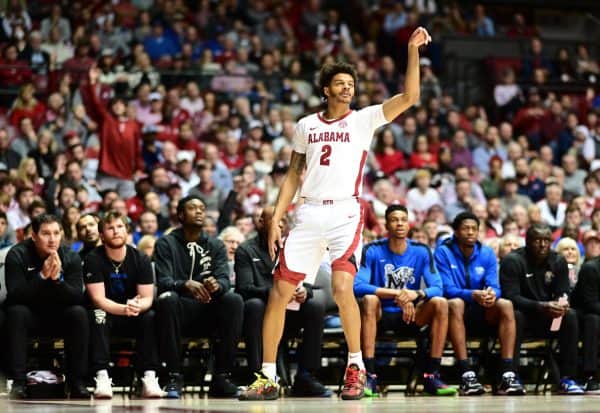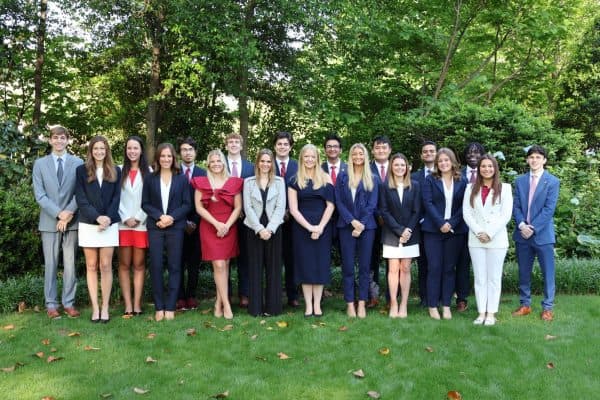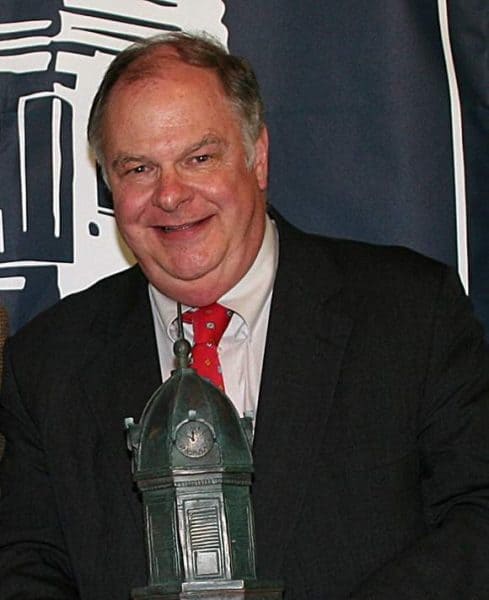University, SGA work to provide more scholarships for adapted athletes
October 15, 2018
The University and Student Government Association (SGA) have recently taken steps to allow more adapted athletes to attend the University by allocating scholarship money towards the Adapted Athletics program.
The Adapted Athletics program has never had a problem with recruiting, but rather with turning talented adapted athletes away each year because of low scholarship funds, said Director of Adapted Athletics Brent Hardin.
“We just turn away so many kids every year, because they don’t have the money to come here to The University of Alabama,” Hardin said. “We have really maxed out what we can do in our available funds.”
The University and the SGA announced the allocation of a $70,000 scholarship fund from Coca-Cola Co. to the Adapted Athletics program on the University’s website on Aug. 17. The scholarship is part of a larger 10-year agreement that allows the company to be the exclusive beverage provider at the University.
The University’s Vice President for Financial Affairs Matt Fajack said he knows that the University can continue to find resources like Coca-Cola to fund scholarships for programs such as Adapted Athletics.
“We are pleased Adapted Athletics was selected for the $70,000 scholarship allocation,” Fajack said. “We are working with colleagues in [the Division of Advancement] to continue identifying sources for support of this incredible program.”
In addition to being awarded a $70,000 scholarship, Adapted Athletics is also waiting to hear from the University about a piece of SGA legislation that was passed last year by former senator and alumna Darby McQueen. The legislation would raise tuition for each student by $3 and establish a scholarship fund for Adapted Athletics.
The tennis, women’s and men’s basketball programs would be given one dollar from each student’s tuition. The number given to each program would then be subject to change each semester, because it is based on the population of the student body. This semester each program would receive $38,392, according to enrollment numbers on the University’s website.
The act, however, has been put on temporary hold by Fajack and SGA Vice President of Financial Affairs Clay Gaddis, a senior majoring in biology, because of concern around adding $3 to each student’s tuition and implementing opt-out fees.
“While the SGA proposal is a laudable initiative, the policy and process for implementing opt-out fees is complicated and not always in the best interest of students,” Fajack said.
Fajack and Gaddis each said the SGA proposal could set a dangerous precedent that ultimately leads to sports organizations lobbying for students to pay a few extra tuition dollars to support their organization.
“If we give them access to it, then we’d have to hear everyone’s request for it,” Gaddis said. “I don’t want it to be one of those things where, ‘well Adapted Athletics got it, so we should be able to too.’”
Gaddis said the $3 addition to tuition could be changed to $2 per student for cost purposes.
McQueen said she would not be a fan of the number being changed to anything other than $3.
“That was something that I know was thoroughly hammered out through the finance committee in which it was sent,” McQueen said. “That was something they chose not to fix.”
Despite these possible issues, Gaddis said he is committed to seeing the legislation through, because the Adapted Athletics organization is full of great people and is simply looking to grow.
“The reason I took it on is because it does have great potential,” Gaddis said. “And the reason why I’ve worked on it so hard this summer is because of its potential.”
McQueen also said the act is really important to her, and that she believes it should be important to others.
“I think they would love to expand their program,” McQueen said. “This would allow them to expand that so we could have even more of these amazing students.”
Overall, the act has roughly a 60 percent chance of being implemented, said Gaddis.
He said if the legislation did not pass, then he would begin to get creative and continue to look for possible solutions.
“I want to see it pass,” Gaddis said. “I definitely think they deserve it.”
Adapted Athletics students said having scholarships takes a huge financial burden off them and allows them to be better teammates and students.
Jordan Bartley, a men’s basketball player on the University’s Adapted Athletics team, said the scholarship that he received from Adapted Athletics allowed him to come to The University from Australia in 2014, well before Coke awarded the University $70,000.
“It was a very awesome feeling to be able to come over from Australia and attend a great university,” said Bartley, a senior majoring in general business. “To have assistance from a scholarship is truly great.”
Bartley also spoke highly of McQueen’s passed legislation and said it would be an incredibly beneficial program that could provide more opportunities to adapted athletes across the country and around the world.
“The more chances we can get to get more scholarships to enable more great players to come to this school, the better,” Bartley said. “In the grand scheme of things, if you think about all the scholarship opportunities that can go to great athletes in the Adapted Athletics program, I think it would just be huge.”
Shelby Baron, a second-year graduate student majoring in speech pathology, also said having a scholarship has helped decrease stress, and she thanked the SGA and UA administration for their efforts.
“It’s really relaxing to not feel that financial burden,” Baron said. “I’m really thankful for all the opportunities that the SGA and administration have provided for us.”
Hardin also said that he thanks both the SGA and administrators such as Bob Pierce and Matt Fajack within the University who have been instrumental in allocating the money toward Adapted Athletics.
“Our administration gives us more than anybody else in the country,” Hardin said. “We acknowledge that and appreciate that and we’re so thankful to be at Alabama.”










